Ashcan School (Early 20th Century)
Get a Ashcan School (Early 20th Century) Certificate of Authenticity for your painting (COA) for your Ashcan School (Early 20th Century) drawing.
For all your Ashcan School (Early 20th Century) artworks you need a Certificate of Authenticity (COA) in order to sell, to insure or to donate for a tax deduction.
Getting a Ashcan School (Early 20th Century) Certificate of Authenticity (COA) is easy. Just send us photos and dimensions and tell us what you know about the origin or history of your Ashcan School (Early 20th Century) painting or drawing.
If you want to sell your Ashcan School (Early 20th Century) painting or drawing use our selling services. We offer Ashcan School (Early 20th Century) selling help, selling advice, private treaty sales and full brokerage.
We have been authenticating Ashcan School (Early 20th Century) and issuing certificates of authenticity since 2002. We are recognized Ashcan School (Early 20th Century) experts and Ashcan School (Early 20th Century) certified appraisers. We issue COAs and appraisals for all Ashcan School (Early 20th Century) artworks.
Our Ashcan School (Early 20th Century) paintings and drawings authentications are accepted and respected worldwide.
Each COA is backed by in-depth research and analysis authentication reports.
The Ashcan School (Early 20th Century) certificates of authenticity we issue are based on solid, reliable and fully referenced art investigations, authentication research, analytical work and forensic studies.
We are available to examine your Ashcan School (Early 20th Century) painting or drawing anywhere in the world.
You will generally receive your certificates of authenticity and authentication report within two weeks. Some complicated cases with difficult to research Ashcan School (Early 20th Century) paintings or drawings take longer.
Our clients include Ashcan School (Early 20th Century) collectors, investors, tax authorities, insurance adjusters, appraisers, valuers, auctioneers, Federal agencies and many law firms.
We perform Ashcan School art authentication, appraisal, certificates of authenticity (COA), analysis, research, scientific tests, full art authentications. We will help you sell your Ashcan School or we will sell it for you.
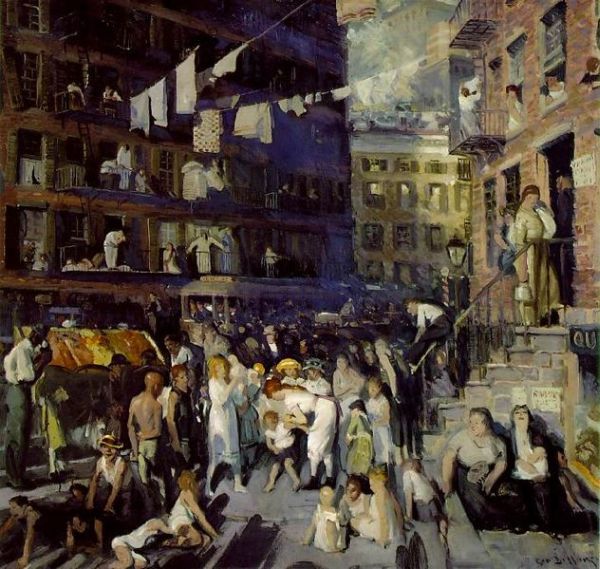
George Wesley Bellows “Cliff Dwellers”
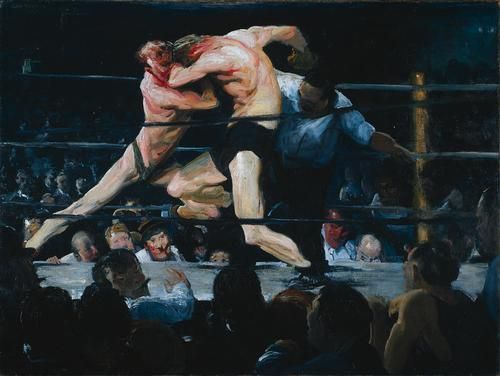
George Wesley Bellows “A Stag at Sharkey’s”
The Ashcan School, also called the Ash Can School, was a group of twentieth century painters, known for their un-idealized paintings of New York City. The group aimed to show another side of the city, that wouldn’t hide grit, tenements, poverty or litter (like ashcans). They are sometimes referred to as the New York realists, for their attempt to “paint life as it is”.
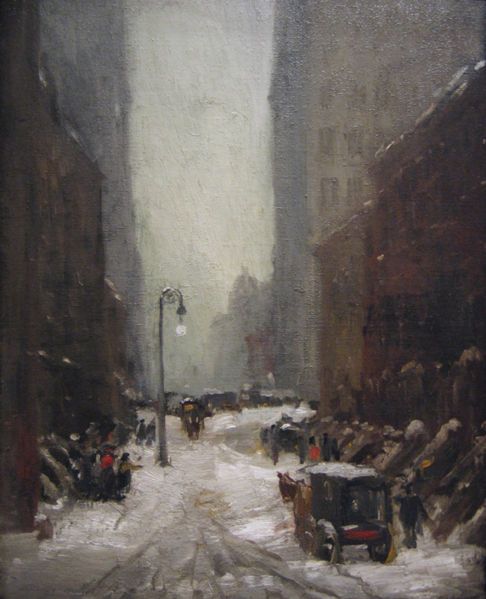
Robert Henri “Snow in New York”

Robert Henri “Cafferty”
The Ashcan School stemmed from another group of painters, known as The Eight, which was led by Robert Henri, a painter from Philadelphia who moved to to New York in 1900. Henri joined the National Academy in 1905, studying for two years before challenging the institution’s standards. Henri along with seven other painters (Arthur B. Davies, George Luks, William Glackens, John Sloan, Everett Shinn, Maurice Prendergast and Ernest Lawson) held a historical exhibit at the Macbeth Gallery in New York City.
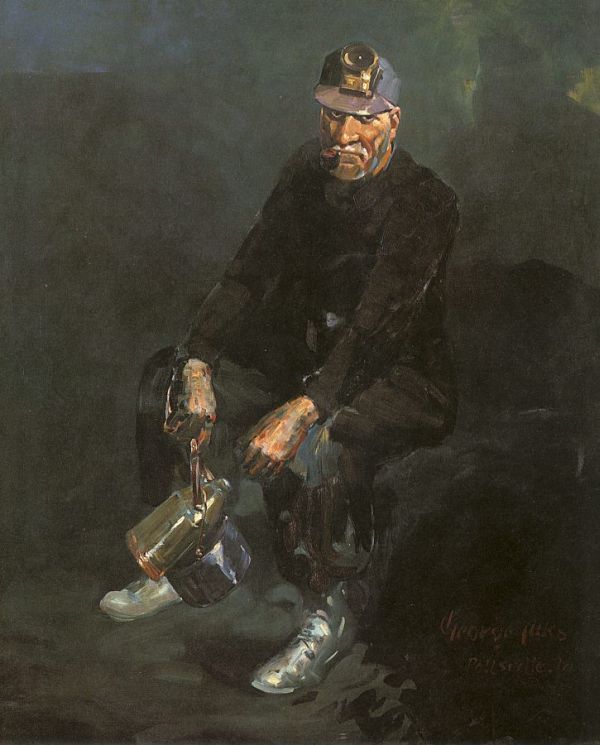
Luks “The Miner”
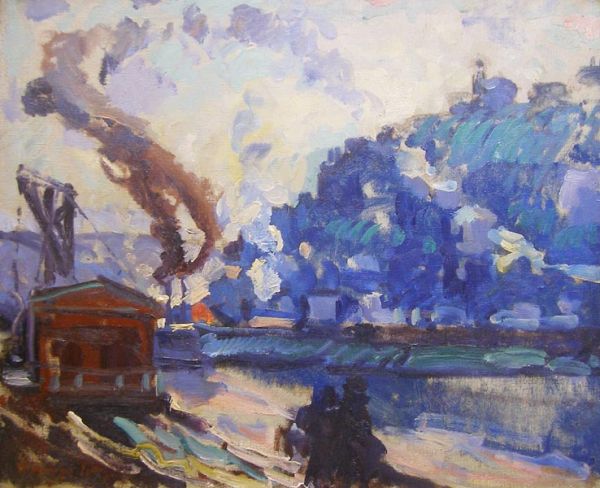
Luks “Morning Shadows”
The 1908, Macbeth Gallery exhibition was the only time The Eight formally showed together. The show did however tour the country, affiliating itself with the Pennsylvania Academy of Fine Arts, where many of the Philadelphia artists had previously studied under instructor Thomas Pollock Anshutz.
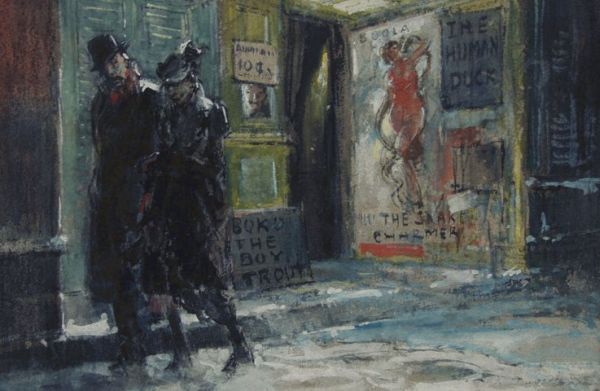
Shinn “Bowery Museum”
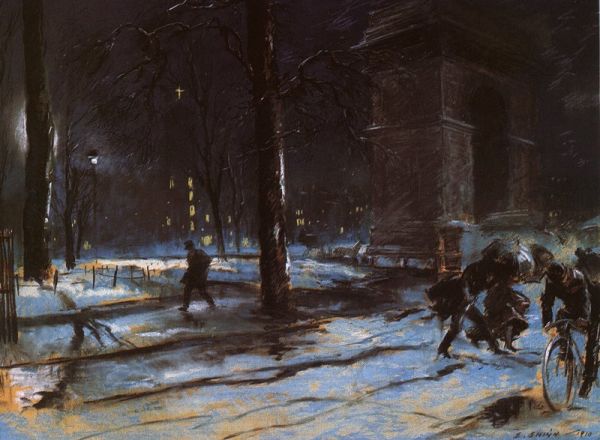
Shinn “Washington Square”
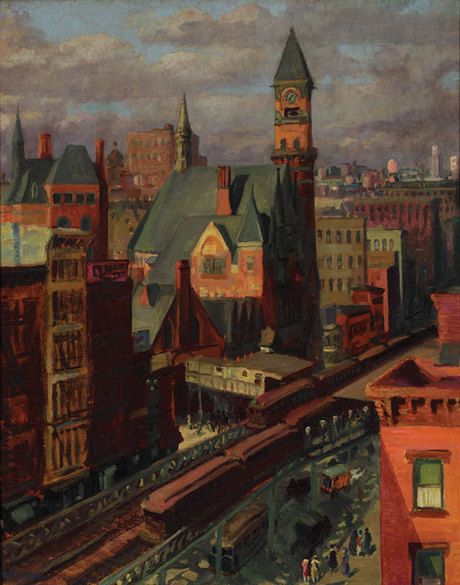
Sloan “Jefferson Market”
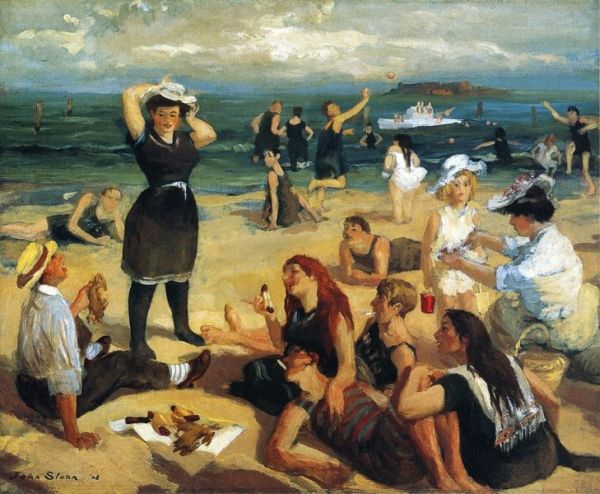
Sloan “South Beach Bathers”
Eventually, six members of The Eight went on to form the Ashcan School: Henri, Glackens, Luks, Lawson, Shinn and Sloan. Other painters associated with the group include Alfred Maurer, George Wesley Bellows, Edward Hopper, and Guy Pène Du Bois.
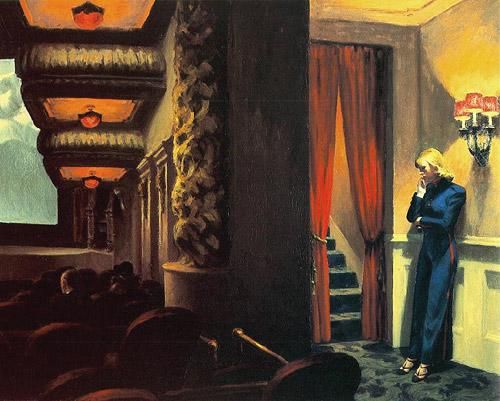
New York Movie, 1939
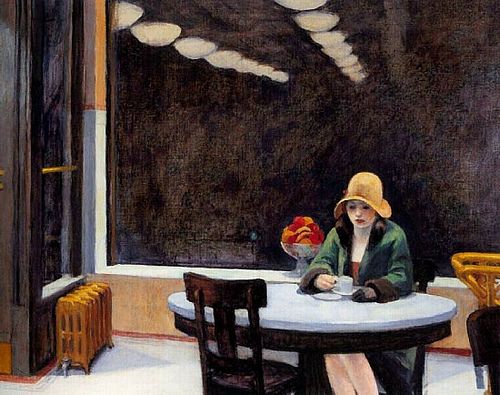
Automat, 1927
Many of the Aschcan artists started out working as illustrators for newspapers, providing on-site sketches before photojournalism took off. Consequently, the artists were not accustomed to painting idealized scenes, but the harsh realities of American life. This became an overriding theme of the Ashcan school.
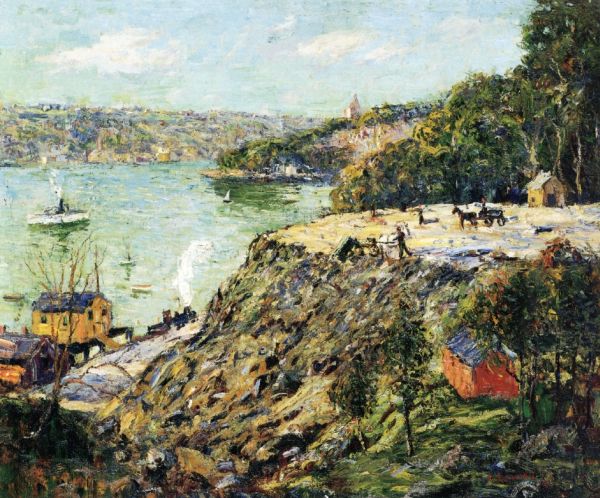
Lawson “Scene Across the River”
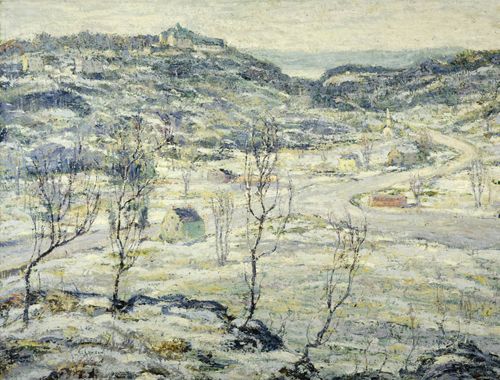
Lawson “Harlem River Valley”
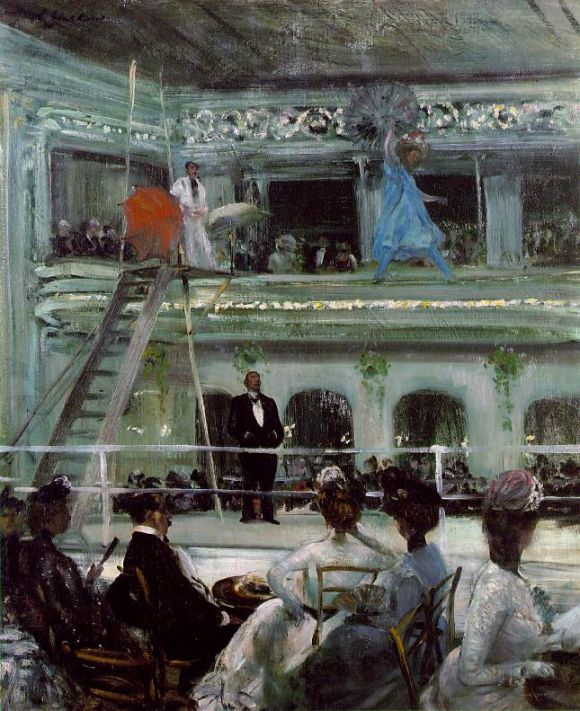
Glackens “Hammerstein’s Roof Garden”
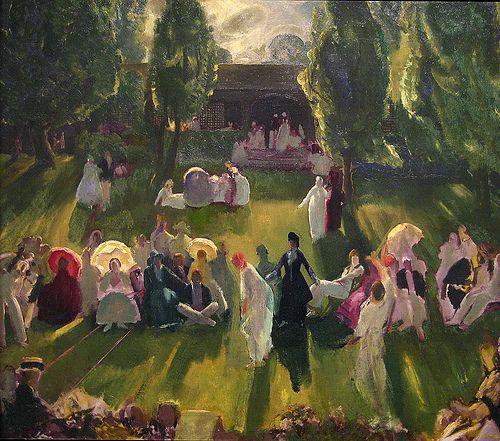
Glackens Tennis at Newport, 1919
Reviews
1,217 global ratings
5 Star
4 Star
3 Star
2 Star
1 Star
Your evaluation is very important to us. Thank you.
